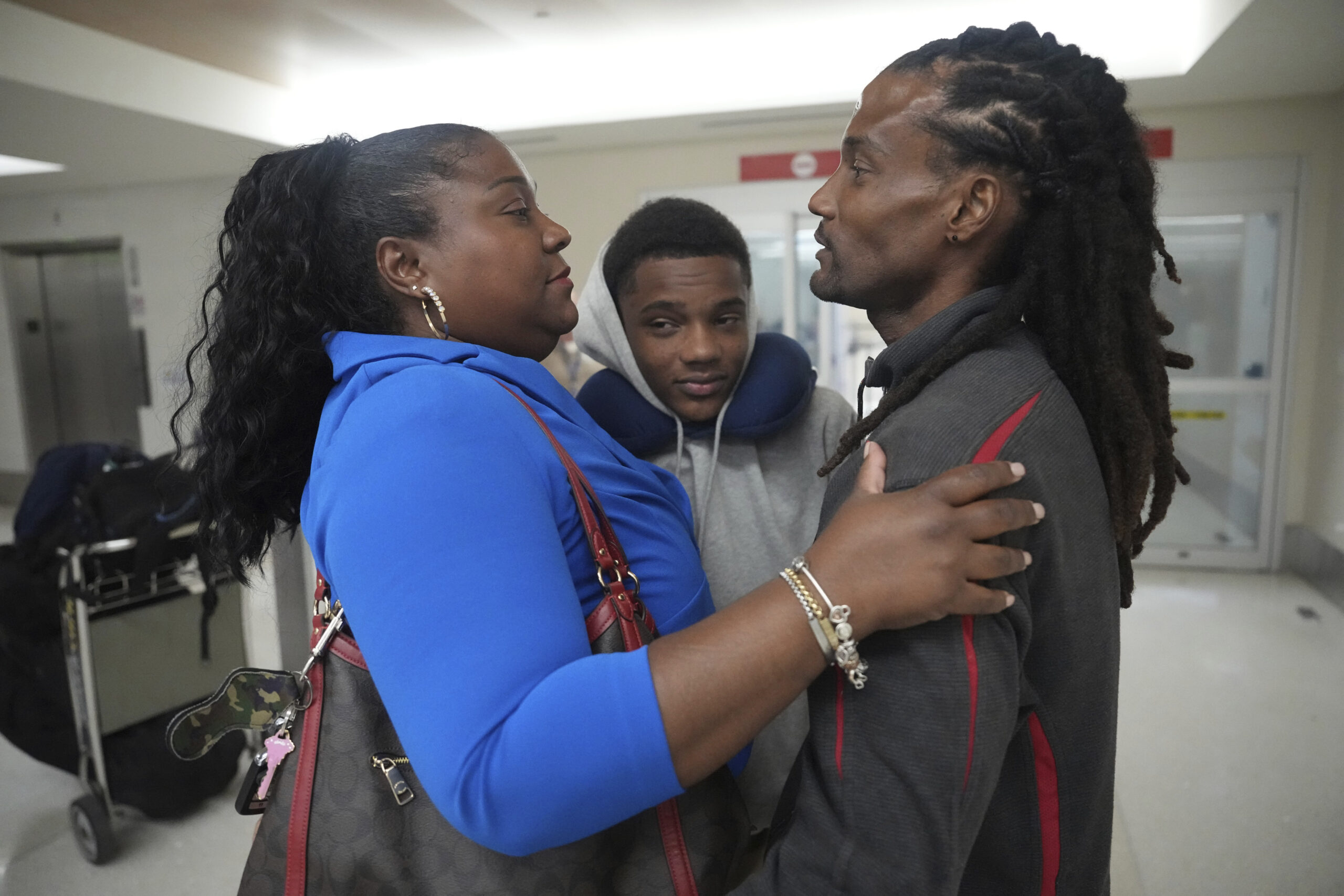A key portion of President Joe Biden’s immigration policy that allows a limited number people from Central America and the Caribbean to enter the U.S. on humanitarian grounds was being debated in a Texas federal courtroom on Thursday.
Under the humanitarian parole program, up to 30,000 people are being allowed each month to enter the U.S. from Cuba, Haiti, Nicaragua and Venezuela.
Texas is leading a lawsuit filed by 21 Republican-leaning states to stop the program, arguing the Biden administration has overreached its authority. Other programs the administration has implemented to reduce illegal immigration have also faced legal challenges.
But immigration law has for over 70 years granted presidents the authority to grant such parole, a lawyer with the UCLA Center for Immigration Law and Policy said during opening statements in the trial. The center is one of the immigrant rights groups arguing on behalf of seven people sponsoring migrants. One of the sponsors was expected to testify during the trial.
The parole program was started for Venezuelans in fall 2022 and then expanded in January. People taking part must apply online, arrive at an airport and have a financial sponsor in the U.S. If approved, they can stay for two years and get a work permit.
The program has “been tremendously successful at reducing migration to the southwest border,” attorneys for the U.S. Justice Department, which is representing the federal government in the lawsuit, wrote in court documents.
A trial on the states’ lawsuit is being presided over by U.S. District Judge Drew Tipton in Victoria, Texas. Tipton, a Donald Trump appointee, has previously ruled against the Biden administration on who to prioritize for deportation.
The trial was being livestreamed from Victoria to a federal courtroom in Houston, and was expected to last two days. Tipton was expected to issue a ruling at a later date.
In court documents, Texas and the other states have called the Biden administration’s program an “extreme example” of not enforcing immigration laws that require it to “grant parole only on a case-by-case basis for significant public benefit or urgent humanitarian reasons.”
While the Republican states’ lawsuit is objecting to the use of humanitarian parole for migrants from Cuba, Haiti, Nicaragua and Venezuela, it hasn’t raised any concerns for its use to grant entry to tens of thousands of Ukrainians when Russia invaded.
Texas has also argued the parole program causes financial harm because it has to provide services, including detention, educational, social services, and driver’s license programs, to the paroled migrants.
The immigrant rights groups have defended the humanitarian parole program, saying it’s a safe pathway to the U.S. for desperate migrants who would otherwise be paying human smugglers and bogging down border agents. The program is also helping reduce the humanitarian crisis along the U.S.-Mexico border, the groups said.
As of the end of July, more than 72,000 Haitians, 63,000 Venezuelans, 41,000 Cubans and 34,000 Nicaraguans had been vetted and authorized to come to the U.S. through the parole program.
(AP)












4 Responses
America is on a course to it completion and END……..
Are all the migrants flooding in to this country fully vaccinated?! Vinishmartem.
The three Latin American countries are run by non-democratic (small “d”), socialist governments. These people, along with Cuban refugees, are classic examples of the sorts of refugees the United States needs. They tend to be educated, anti-socialist, pro-democracy, and fairly religious (why Biden welcomes them may suggest further evidence of senility – they are quite likely to end up as political conservatives of the Rageanesqe variety).
for the math challenged, that’s 1.4 million people a year. looked at another way, the american economy is creating about 300,000 new jobs a month; bringing in 120,000 migrants would effectively reduce that by 40%. in other words, it would have a significant effect on the labour market.